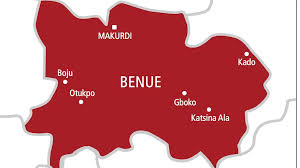A coalition of professionals, civil society groups, and religious leaders from Benue state Sunday called for global attention to what they describe as “ethnic cleansing and strategic displacement” in Nigeria’s Middle Belt region.
The coalition cited figures from the Benue State Emergency Management Agency (SEMA), reporting that more than 2 million people have been displaced and over 6,000 lives lost in attacks linked to armed herdsmen since 2013.
Led by prominent advocate and innovation strategist Gideon Inyom, at a press conference held in Makurdi, the group issued a clarion call for immediate international intervention and asylum protections.
The group said already, over 200 deaths have been recorded in 2024, with the massacre of 200 villagers in Yelwata serving as a devastating flashpoint.
Inyom, flanked by faith leaders, youth activists, and humanitarian professionals, declared that the event was not ceremonial but born of “pain, duty, and desperation.”
The coalition at the press conference painted a grim portrait of life in overcrowded IDP camps, where families live without access to food, education, or medical care.
“Children are growing up without classrooms. Women are giving birth without clinics,” Inyom stated, stressing the urgency of relief.
The group formally appealed to governments of the United States, United Kingdom, and European Union to grant emergency asylum and protected status to displaced Benue citizens.
Referencing international legal instruments, including the 1951 Refugee Convention, the Universal Declaration of Human Rights, and Africa’s Kampala Convention, the coalition emphasised the moral and legal imperative to act.
Once celebrated as the “Food Basket of the Nation,” Benue’s fertile lands now serve as battlegrounds.
Speakers at the occasion warned that attacks are “systematic, sustained, and strategic,” intended not only to displace but to replace indigenous populations.
The silent war on Benue must end. The coalition pledged to speak “not with anger, but with truth.”
“The press conference marks the beginning of a global advocacy campaign, which will involve: diplomatic outreach to foreign governments, engagement with humanitarian organizations and UNHCR, submission of legal documentation to international human rights bodies and coordinated mobilization of Nigerian and diaspora voices,” the group noted.
